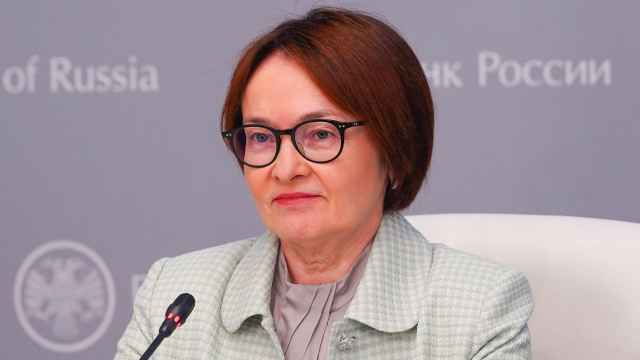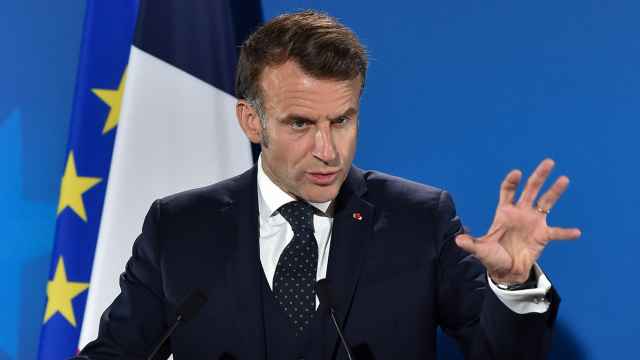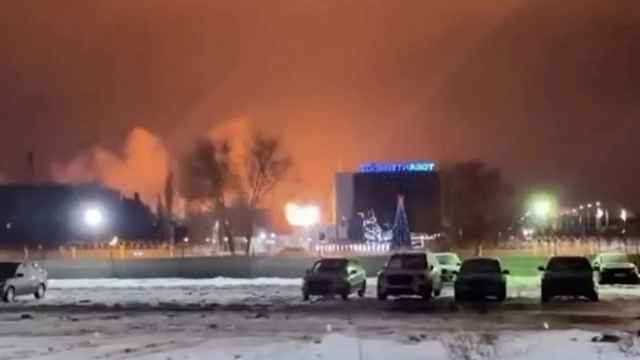Transneft, the state-owned oil pipeline operator, intends to raise fees for oil transit by 9.9 percent in December to help fund new links and leave the fees at that level next year as oil producers complain about rising costs.
“Our income will be enough to service our borrowing,” Transneft chief executive Nikolai Tokarev told reporters Friday.
Transneft will begin delivering oil to China next year after getting a $10 billion Chinese loan to construct a pipeline. Transneft is also building the Baltic Pipeline System bypassing Belarus after pricing and purchasing disputes threatened supplies to Europe.
Oil companies have complained that increases in transit rates combined with the tax regime may cause a delay in investment in some oil fields.
The company is normally allowed to revise its fees at the end of each year, but they have already risen by 15.9 percent from January.
Tokarev said the fees would rise by a further 9.9 percent from Dec. 1, adding that the rate increases compensate for inflation.
Tokarev also said Transneft aimed to complete construction of the second phase of the Baltic Pipeline System, or BTS-2, in December 2011, earlier than the original timeline of the third quarter of 2012.
The timing of the construction of the terminal at the Russian Baltic port of Ust-Luga will depend on coordinating work with neighboring terminals being built by Rosneft and natural gas producer Novatek.
Tokarev said Transneft would not significantly increase dividends after the completion of the BTS-2 link and the East Siberia-Pacific Ocean pipeline to China, Japan and South Korea.
Tokarev also said Transneft would build a link with LUKoil, TNK-BP and Gazprom Neft to unlock Arctic deposits and fill an existing route to Asia.
The oil producers will form a venture to construct the 60 billion ruble ($2 billion) pipeline because Transneft does not have the money to work alone, Tokarev said.
Transneft will buy the pipeline, which will connect the Zapolyarnoye region to the Purpe transit hub, by providing the oil companies discounts to transit rates, Tokarev said. The link will have the capacity to ship 12 million metric tons of oil a year.
“We aren’t going to waste time,” Tokarev said. “This is the north, and the best time to build is the winter period. We’ve decided not to wait until all the formal procedures are completed.”
LUKoil, TNK-BP and Gazprom Neft plan to develop deposits in northern regions to replace declining output in Russia’s traditional resource base in West Siberia.
Turning to a Finance Ministry proposal to sell shares in Transneft, Tokarev said the idea would be the “worst thing” that could happen to the company.
The operator may have to repay about $4 billion on eurobonds if state ownership falls below 75 percent and may face a downgrade in its credit rating, making borrowing more expensive, Tokarev said.
The Finance Ministry has said the sale would help narrow the budget deficit in the next three years.
(Bloomberg, Reuters)
A Message from The Moscow Times:
Dear readers,
We are facing unprecedented challenges. Russia's Prosecutor General's Office has designated The Moscow Times as an "undesirable" organization, criminalizing our work and putting our staff at risk of prosecution. This follows our earlier unjust labeling as a "foreign agent."
These actions are direct attempts to silence independent journalism in Russia. The authorities claim our work "discredits the decisions of the Russian leadership." We see things differently: we strive to provide accurate, unbiased reporting on Russia.
We, the journalists of The Moscow Times, refuse to be silenced. But to continue our work, we need your help.
Your support, no matter how small, makes a world of difference. If you can, please support us monthly starting from just $2. It's quick to set up, and every contribution makes a significant impact.
By supporting The Moscow Times, you're defending open, independent journalism in the face of repression. Thank you for standing with us.
Remind me later.





